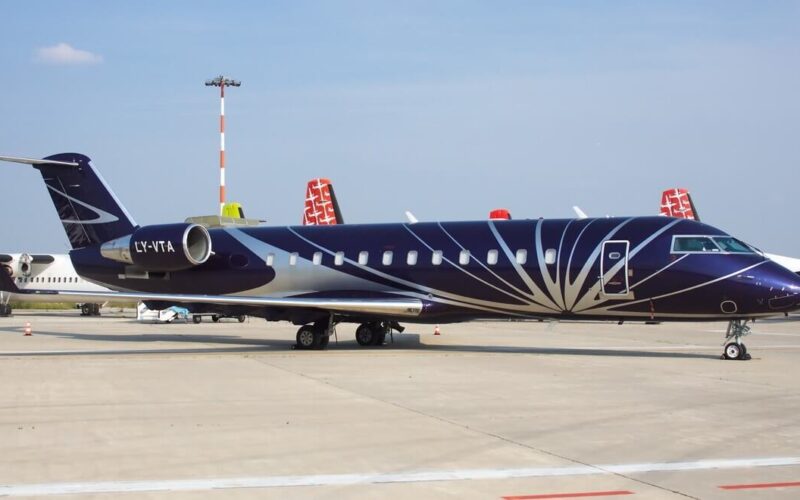The aviation industry continues to evolve and proliferate, with new trends becoming increasingly prevalent in commercial and private aviation. However, a notable phenomenon in private aviation entails the democratization of luxury travel, characterized by changing perceptions among air travelers about private flying as a domain exclusively reserved for the ultra-wealthy and increased utilization of private air travel services.
The democratization of private air travel is a result of the correlation between luxury and economic cycles, which create the cycle of luxury. Following disruptive economic cycles, for example, economic resurgence implicated by global events such as pandemics, conflicts, and economic sanctions, private aviation firms are likely to exploit symbolic social aspects of private aviation to extend their brands down the premium air travel market.
From a business economics perspective as viewed by KlasJet, one of the largest exclusive private fleets in Europe, the trend is occasioned by a selective trading up and the increased consumption of private air travel services that command a premium over commercial non-luxury air travel services by middle market consumers. This group of democratized consumers has expressed interest in more than the ordinary services offered by commercial aviation, as they seek the convenience and aura provided by private air travel.
Thanks to luxury democratization, the business aviation segment has become increasingly accessible for intermediate-sized enterprises (ETIs) and small and medium-sized enterprises (SMEs) travelers and other diverse travel activities, including group flights, cargo flights, and medical evaluations.
A critical factor that has propelled this epochal change is the fast-changing lifestyles characterized by sophisticated tastes among air travelers, growing middle classes, changing generations, and access to higher disposable incomes, which has increased the demand for global travel. Besides, the democratization of private aviation results from the increased marketing of luxury air travel, which has affirmed its value and initiated a change in consumption patterns. Further, the expanded product portfolios provided by private aviation operators have played an immense role in democratizing this aviation segment.
The World Bank projects that the growing population of middle-income economies may hasten the democratization process and increase the consumption of private air travel services at a faster rate than any other factor. The middle classes include individuals who earn or spend an average of $10 to $100 per day or more. Until recently, the consumption of private air travel by this population was unheard of, pointing to a new trend towards the democratization of business aviation.
McKinsey has observed that the explosive growth and expansion of the middle classes in many countries, including Western Europe, Intra-Western Europe, China, and the US, may trigger sweeping economic changes and social transformation – a fundamental market change that may hasten the democratization of private flying. Current projections indicate that over 75% of middle-class consumers in urban China will earn an annual disposable income of $9,000 to $34,000 by the end of 2022. Such changes, driven by financial reforms and labor market initiatives, will provide a higher consumption power, leading to increased utilization of private air travel services.
The middle-class expansion will have a cascading effect on other air transportation areas, most notably private air cargo services. The CEO of KlasJet points out that, similar to passenger travel, air cargo deliveries are a crucial aviation market and a defining feature of the growing middle classes. He alludes that air cargo deliveries provide an enabling factor to economic advances and, consequently, middle-class growth. For example, Embraer, a leading aerospace manufacturer, has projected a 16% increase in the demand for jet seats for global deliveries by 2023. On average, renting a 300-seats air cargo charter would cost an average of 9,000 € per hour. Unlike in the past, where private jets were limited to elite travelers, the ongoing democratization of this aviation segment has increased its attractiveness for cargo flights and tailor-made airfreight charters.
The private aviation segment offers a timesaving and reliable mobility option for ETIs and SME travelers. In France, for instance, SMEs account for over 99% of the companies across economic sectors. Owing to democratization, business aviation has provided a more convenient option for this new customer group, with significant timesaving benefits, besides offering convenience and efficiency in air travel.
The European Business Aviation Association (EBAA) estimates indicate that SME travelers can save up to 57 working days by taking private flights each year. Further, Aeroaffaires projects that ETI and SME travelers can access private jets from more than 4,000 airports in Europe and over 8,000 worldwide. These colossal figures indicate how private aviation has become increasingly accessible, offering efficient, flexible, and convenient options for business travelers worldwide.
Looking a few years back, the situation in the private aviation segment has changed immensely. Unlike in the past, many aviation consumers no longer view private aviation as a domain reserved for wealthy and elite travelers. Such preconceived ideas where business aviation is linked to opulence and luxury have declined, with different consumer groups trading up and dominating the previous luxury markets, such as private aviation. This democratization has presented significant development opportunities as the demand for charter flights grows from new customer groups.

